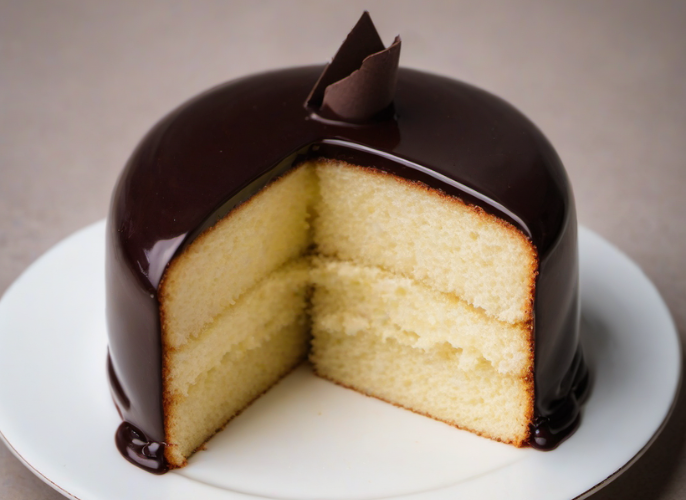Creating plant-based pastries is easier than you think! With a few simple substitutions and a dash of creativity, you’ll be able to create mouth-watering treats. In this guide, we'll share the essential tips and tricks to help you get started on your plant-based pastry making journey.
Key ingredients and their plant-based substitutes
In the world of plant-based pastry making, the quality of ingredients can change your creations from ordinary to extraordinary. But what are the key components that make a plant-based pastry truly special, and how do you swap out traditional ingredients for plant-based alternatives?
In this section, we'll delve into the fundamental ingredients that will help you craft innovative plant-based pastries and provide you with the knowledge you need to substitute them with ease.
Eggs
Eggs are a fundamental component in baking, serving as emulsifier, aerator, and coagulant. To replicate their functionality in plant-based baking, we can harness the power of potato protein and soy protein for aeration, while combining water and vegetable oils with fibres to achieve emulsification. By leveraging these innovative substitutes, you'll be able to create plant-based baked goods that are not only delicious but also remarkably like their traditional counterparts.
Butter
Butter provides a rich source of fat, texture, and emulsification. To replicate its functionality in plant-based baking, we can create a blend of coconut oil, refined sunflower oil, water, sojawhip and natur emul that offers a neutral flavour profile. Not only can we use oil to flavour our plant-based butter, but we can also experiment with flavour in powder and also fat-soluble aromas.
This combination provides a perfect substitute for butter, allowing you to achieve the same level of moisture and tenderness in your baked goods. For added depth and complexity, you can also experiment with sesame or almond oil to give your creations a unique flavour.
Milk
Milk in baking, provides moisture and flavour to a wide range of sweet and savoury treats. Fortunately, plant-based milks have emerged as excellent substitutes, offering a variety of flavour profiles to suit your recipe's unique needs. From the nutty taste of soy milk to the creamy richness of coconut milk, and the subtle sweetness of rice milk, plant-based milks provide a versatile range of options for achieving the perfect balance of moisture and flavour in your baked goods. We could also make our own milk substitute by using 87% water, 5% proteins, 4.5% sugars and 3.5% fats.
Cream
Cream provides a rich source of fat so for plant-based alternatives, you can combine plant proteins with flavoured liquids and fats to create a creamy texture and a burst of flavour. For mousses, this combination is particularly effective, allowing you to create light and airy textures that are simply divine. For baking, shea butter or coconut fat provide a rich and creamy texture that is perfect for cakes, cookies, and other sweet treats.
Gelatine
Gelatine is a common ingredient in many recipes, serving as a stabiliser and gelling agent to create a range of textures and consistencies. For plant-based alternatives, we can turn to a variety of vegetable gelling agents, including gellan gum and pectins, to achieve similar results.

Try applying the rules above to a plant-based sponge cake recipe...
Creating a plant-based sponge cake involves substituting traditional animal-derived ingredients with plant-based alternatives. Here’s how to do it:
Plant-based sponge
A fundamental dough in the sweet world, traditionally made with eggs, flour, and sugar. For a plant-based (egg-free) version, use:
- Water
- Potatowhip for aeration and coagulation
- Coconut fat for texture and emulsification
Shop potatowhip
Plant-based crémeux
To add creaminess and fill layers:
- Replace milk with a vegetable-based liqueur
- Use natur emul for egg yolks
- Replace gelatine with pectins (e.g. Nappage X58)
Plant-based ganache
For a delightful mouthfeel and tasty finish:
- Substitute cream's fat with shea or coconut fat
- Use sojawhip or natur emul for emulsification
Putting it all together
Combine these ingredients to create a cake with layers of sponge, creamy filling, and a delicious topping. All ingredients will be plant-based, ensuring a flavourful and satisfying result.

Sosa glossary
Gellan gum
Thickening agent and emulsifier based on powdered Gellan Gum. Boil powder in any liquid for a strong thickening effect. Designed to resist and remain effective even in high temperatures. Taste and odour free.
Natur emul
Freeze-thaw stable natural emulsifier and stabiliser made from citrus fibre and xanthan gum. Partially soluble in fat and highly soluble in liquid. Use in mousses, mayonnaise, cakes and batters.
Potato whip
Egg and milk free whipping powder derived from potato. An emulsifier and texturiser which has an airing effect on foods. Use hot or cold to create lighter, more stable foams, meringues, mousses and marshmallows.
Sojawhip
Soluble vegetal protein powder derived from soy. An emulsifier and texturiser which has an airing effect on foods. Use hot or cold to create lighter, more stable foams, meringues, mousses and marshmallows.




